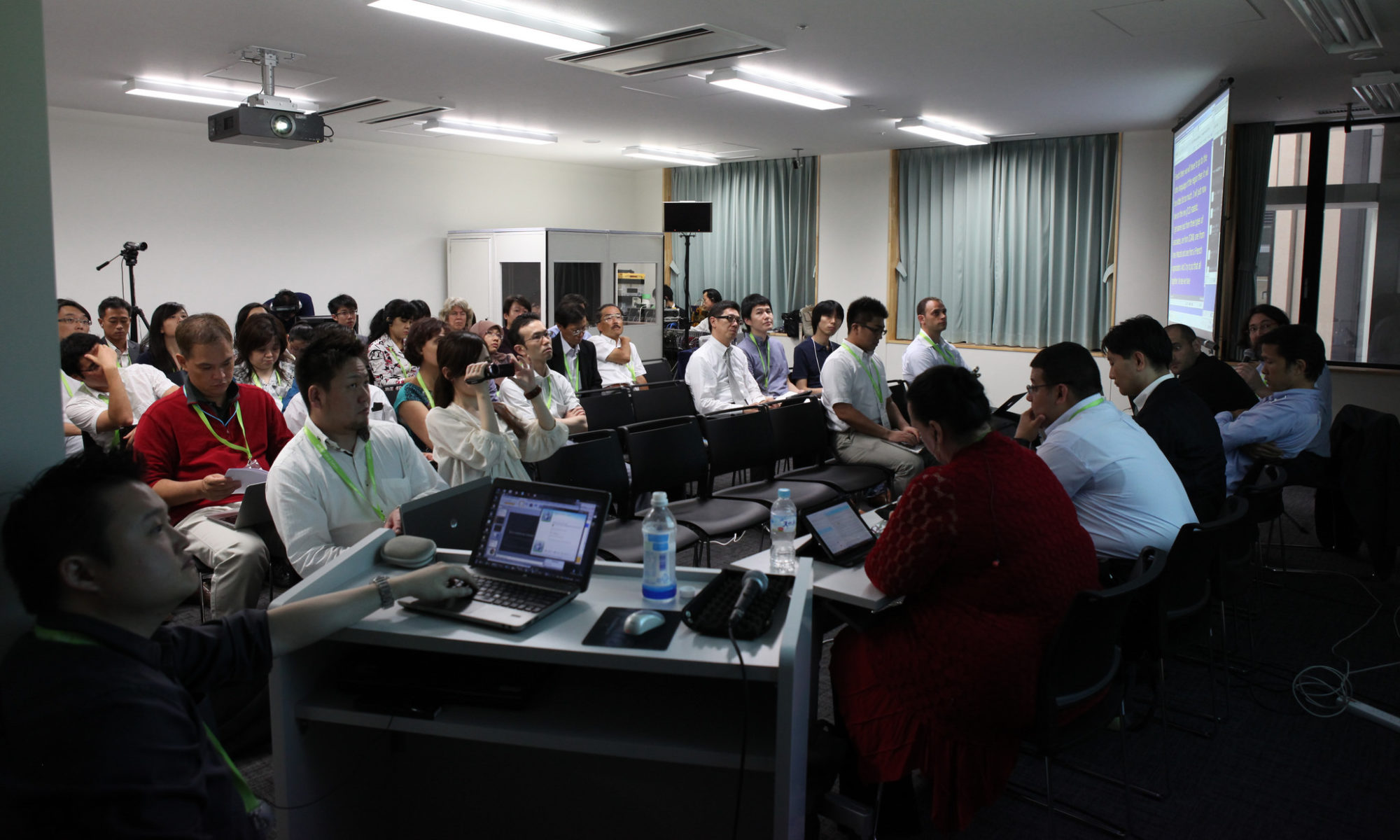Date: 19 July 2012 (Thursday)
Time: 14:30 – 16:00
Venue: Room 17610, 6th Floor, Building No.17, Aoyama Campus, Aoyama Gakuin University
In what has been a few short decades, the Internet has brought about a paradigm shift to everyday life for a large part of the world. This has impacted all aspects of life – be it personal, professional or societal.
The Internet has become an important tool to disseminate information and for advocacy, and it plays a key role in the world economy. The use of e-commerce is on the rise globally, governments are moving their services online to be able to better service their citizens, and businesses large and small depend on the Internet as a tool in their daily activities. Young and old alike are embracing the Internet as a means to communicate, and to be heard.
However, there are still certain parts of the world with little or no Internet access. Where the Internet is available in some way or form, there are still parts of society who are unable to take advantage of the applications and services the Internet provides – and enables. Users from developing countries who are new to the Internet also need to contend with current and emerging issues around security, privacy and accessibility, amongst others – and are not always well-equipped to understand and mitigate such issues. This can also lead to a level of disenfranchisement in terms of the benefits of being online and connected.
It is also important to recognize the diverse make-up of society, and the Asia-Pacific in particular. There are differences in social and cultural norms, there are differences in economic conditions, and there are various political contexts to consider. And sometimes these differences can all exist within one country.
This session will look at some of the big picture development related issues related to Internet governance, and the Asia-Pacific region in particular.
Dimensions to be addressed include:
- what are some examples of the socio-economic impact of the Internet in developing country environments?
- what are some of the multiplier effects of a “connected economy”, particularly those that permeate through other industry sectors?
- what challenges are there in working towards a “connected economy” and a “connected society” from the developing country perspective?
- how do we balance social and cultural considerations on the one hand, and the desire to bring about rapid economic development through the use of technology on the other?
- where does Internet governance fit in the development agenda, and what are some key issues to consider?
- what is required to ensure greater participation in regional and global processes and fora – both policy and technical – so the developing country voice is clearly heard?
Panel
Moderator – Mr. Rajnesh SINGH, Regional Director, Asia-Pacific, Internet Society
Panelists –
- Mr. David APPASAMY, Management Consultant (India)
- Ms. Sylvia CADENA, Project Officer – ISIF (Australia)
- Ms. Maureen HILYARD, Chair – Pacific Islands Chapter, Internet Society (Cook Islands)
- Mr. Phet SAYO, Senior Programme Officer – IDRC (India)
- Mr. Tarn How TAN, Senior Research Fellow, Institute of Policy Studies, Lee Kuan Yew School of Public Policy, NUS (Singapore)
- Mr. Mya THWIN, ICT Consultant (Myanmar)

